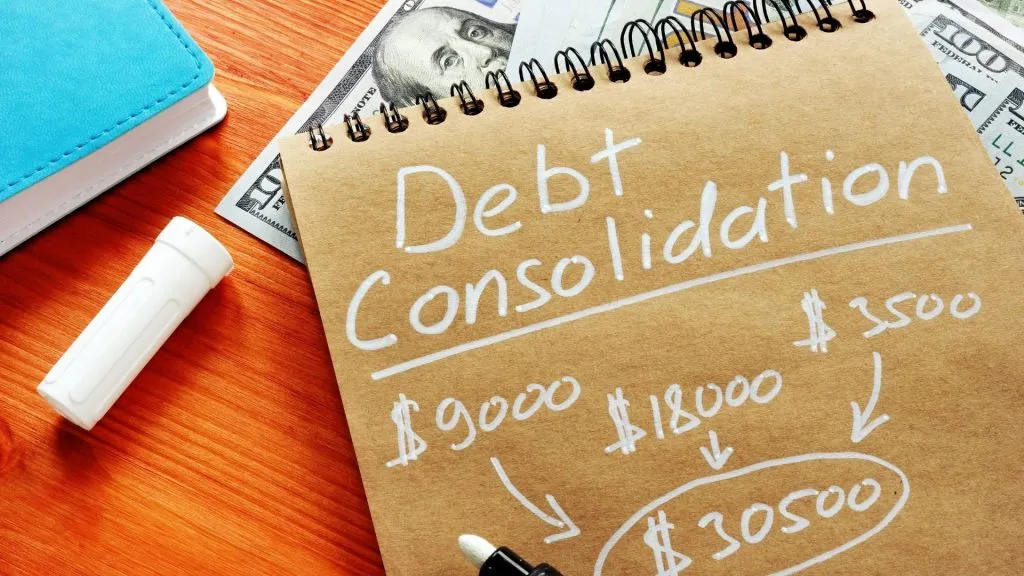Debt can often feel like a heavy chain around one’s financial freedom, but there is a tool that can help lighten the load—personal loans. When used wisely, personal loans offer a strategic method for consolidating multiple debts into one manageable monthly payment. In this blog post, we’ll explore the practicalities and advantages of using personal loans for debt consolidation. From understanding interest rates to navigating the terms of repayment, we’ll provide valuable tips to help you streamline your debts, possibly lower your overall costs, and set you on a clearer path to financial stability. Whether you’re juggling credit card balances, medical bills, or various loans, this guide aims to empower you with the knowledge to use personal loans to your advantage and move towards a debt-free life.
Managing multiple debts can feel a lot like trying to keep a bunch of balloons afloat in the air. The constant worry of one slipping away can be overwhelming. But what if there was a way to hold all those balloons with just one hand? That’s where the beauty of using a personal loan to consolidate debt comes in. Instead of juggling numerous payments, you’re left with just one to handle. It might sound like a dream come true, but before you take the plunge, below is an article discussing the details, the pros and cons, and some valuable tips to make the most of it.
The Attraction of Debt Consolidation

Why should you even consider this whole debt consolidation idea? Picture this: you have five different alarms set throughout the day. Each time one goes off, it’s a reminder to pay a different bill. Stressful, right? Now, imagine having just one alarm. That’s precisely what a personal loan for debt consolidation offers – simplicity. One loan, one interest rate, one monthly payment. It’s like streamlining your morning routine, giving you a bit more time to snooze.
Finding the Perfect Loan

When you’re on the hunt for that ideal personal loan, think of it as shopping for the perfect pair of shoes. You want something that fits comfortably, matches your style, and, of course, comes at the right price. It’s crucial to compare interest rates and loan terms and keep an eye out for any hidden fees. Reading reviews and seeking recommendations from friends or family can also be incredibly helpful. The goal is to find a loan that feels just right, like those sneakers you can wear anywhere.
Crunching the Numbers
Before you dive headfirst into the world of debt consolidation, it’s essential to get a clear picture of your total debt. Imagine you’re about to enjoy your favorite candy – wouldn’t you want to know exactly how many are in the jar? Grab a calculator or a trusty pen and paper and jot down all the amounts you owe and their corresponding interest rates. This will give you a precise target for your loan.
Navigating Potential Pitfalls
Similar to when you’re out hiking and need to watch out for those hidden branches or rocks, debt consolidation comes with its own set of potential pitfalls. Be cautious about opting for super long-term loans. While they might offer smaller monthly payments, they could end up costing you more in interest over time. Always read the fine print thoroughly to avoid any unexpected fees. Safety first, as they say!
A Lifestyle Evaluation
Lantern by SoFi states, “At its most basic, a debt consolidation loan is a personal loan taken out to pay off other debts.”
While consolidating your debts can feel like a breath of fresh air, remember that it’s a financial tool, not a miraculous cure. Take a close look at your spending habits. Perhaps it’s time for some minor lifestyle adjustments to ensure you don’t fall back into the debt trap. Think of it as deciding to eat healthier; small changes can lead to significant improvements over time.
Credit Score Considerations

A good credit score is not just a number; it’s a significant factor when it comes to personal loans. It’s the yardstick by which lenders assess your creditworthiness, and it can have a profound impact on the cost of your loan. Borrowers with higher credit scores typically qualify for lower interest rates, which can result in substantial savings over the life of a loan. On the flip side, a lower credit score might lead to higher interest rates or even loan denial. Understanding your credit score and taking steps to improve it can be essential before seeking a personal loan for debt consolidation.
Debt Repayment Strategies
While debt consolidation is a powerful tool for simplifying your finances, it’s not the only strategy for managing debt. It’s worth mentioning alternative approaches that can help readers make informed decisions. Two popular methods are the “debt snowball” and “debt avalanche.” The debt snowball method involves paying off smaller debts first, providing a psychological boost as you eliminate creditors one by one. On the other hand, the debt avalanche method focuses on paying off high-interest debts first, which can save you more money in the long run. Exploring these strategies can empower readers to choose the one that best aligns with their financial goals and preferences.
Emergency Fund
Consolidating debt is a smart financial move, but it should not overshadow the importance of maintaining an emergency fund. Life is unpredictable, and unexpected expenses can arise at any time, from medical bills to car repairs. Having a well-funded emergency fund ensures that you won’t need to rely on credit cards or take out new loans when these financial curveballs hit. It provides a financial safety net, allowing you to stay on track with your debt consolidation plan without unexpected setbacks.
Financial Counseling

In the quest to regain control of their finances, readers should consider seeking professional financial counseling or advice. Financial counselors, often available through nonprofit organizations, can provide personalized guidance tailored to your unique financial situation. They can help you create a comprehensive debt management plan, provide strategies for budgeting and saving, and offer valuable insights into improving your credit score. Working with a financial counselor can be an invaluable step toward achieving your financial goals, whether that’s debt consolidation or long-term financial stability.
Using a personal loan to consolidate debt can be compared to discovering a shortcut on your way home. It simplifies your journey and makes it more manageable, but it also requires careful navigation. With the right knowledge and a bit of discipline, it can be the financial boost you’ve been seeking. Keep in mind that every financial journey is unique, so always choose the path that aligns with your goals. Safe travels on your road to financial freedom!
